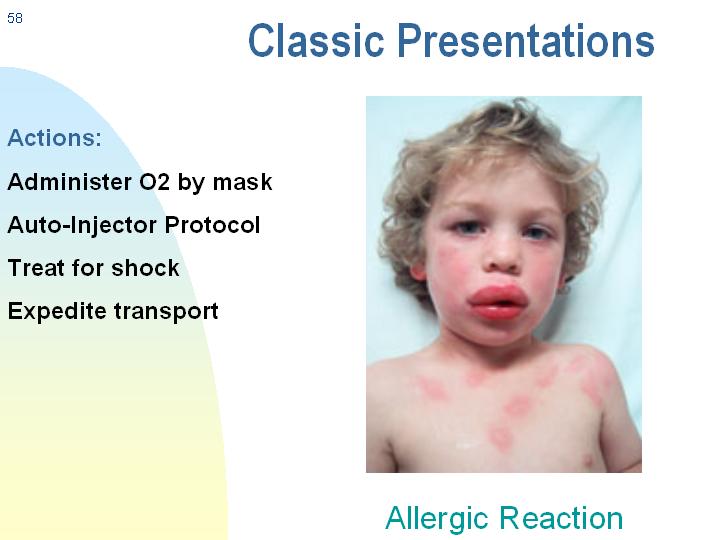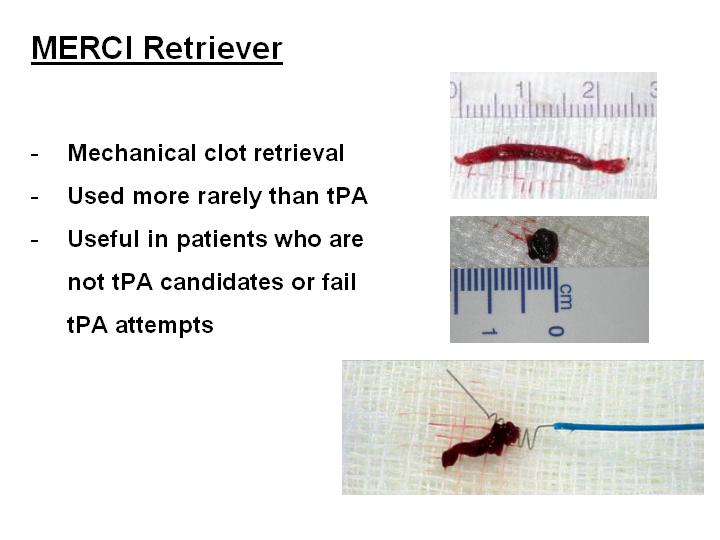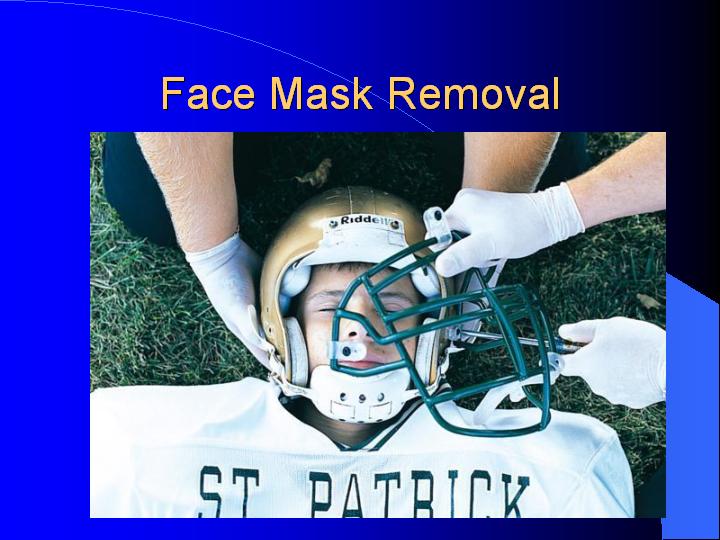Less Stress Instructional Services - Emergency Medical Technician
CEU's (New Jersey)
NOTE: These are not open-programs – this is a menu of courses that
organizations can request to have presented at their site. For open registration programs, click
here.
|
New Jersey EMTs must accrue 48 continuing education units
(CEUs) within 3 years to recertify. 24 of those electives are a refresher program
in which EMTs review basic topics they learned in EMT school (CORE courses).
The other 24 CEUs can be taken in elective topics of the EMTs choosing, as
long as the programs have been approved by the NJ Dept. of Health. All NJ
EMTs expire either on June 30th or Dec 31st of the respective year - check
your certification card and make sure you take all your necessary courses.
Dont wait until the last minute! |
Elective
Programs:
|
Name: |
Hours: |
Credits: |
Description: |
|
Compliance / Regulatory / Mandatory Programs |
||||
|
Bloodborne
/ RTK / Resp |
2 |
2 |
This
basic compliance program satisfies 29 CFR 1910.1030 and 29 CFR 1910.1200. It
is a discussion of fluidborne disease and how to avoid it, as well as Hazard
Communication and Respiratory Protection / TB awareness.
|
|
|
CPR for
Healthcare Providers (Renewal) |
3 |
4 |
This is the
required cardiopulmonary resuscitation program for Emergency Medical
Technicians. |
|
|
National
Registry Review Night |
3 |
3 |
This
program discusses the details of the National Registry Test and discusses
specific strategies for performing well on it. Along with general study tips and focus areas, the program
covers a wealth of self-test questions that students will find helpful in
taking the National Registry Test or simply becoming more familiar with NJ’s
testing standard.
|
|
|
Driving
/ Safety Programs |
||||
|
CEVO
(Lecture) |
8 |
8 |
This is
the National Safety Council's Coaching the Emergency Vehicle Operator
program. It discusses common ambulance operations, driving under lights and
sirens, and EMS accident avoidance. |
|
|
CEVO
(Practical) |
4 |
4 |
This is
the National Safety Council's Coaching the Emergency Vehicle Operator
program. In the hands-on session, participants drive a rig in a series of
simulated exercises. |
|
|
Defensive
Driving Course 6 |
6 |
6 |
This program
is a civilian defensive driving program focusing on accident avoidance
techniques and general awareness. Popular with EMT's, the program grants a 2
point reduction on one's NJ DMV license and a mandatory 5% auto
insurance rebate for three years. |
|
|
EMS
Roadside Incident Safety |
3 |
3 |
This
program discusses common causes of injury and death in EMS workers, and
describes ways of preventing injury.
Video clips of ambulance collisions and accidents are shown, and a
complete fire safety – extinguisher training is conducted with practical
session involving a digital fire extinguisher simulator is conducted. Excellent Drill Night Program! |
|
Homeland Defense Mandatories
|
||||
|
NIMS
(IS-700) |
2.5 |
2.5 |
This is
the introductory program for National Incident Management System (NIMS)
required for all emergency responders.
Provides insight into the federal system for structuring incident response
and introduces the responder to his/her roles in that system. Excellent Drill Night Program! |
|
|
ICS – 100 |
2 |
2 |
This is
the introductory level command structure program required for all emergency
responders. It defines the
individual’s roles and responsibilities of the individual, identifies the
various required functions of a response. Excellent Drill Night Program! |
|
|
CBRNE |
4 |
4 |
This
program introduces the student to the definition of CBRNE (Chemical,
Biological, Radiological, Nuclear, Explosive) events. It also describes some common
mechanisms used in the past (or theorized to be possible future attacks) as
CBRNE attacks. This is program
is slated as a future requirement for EMT recertification (although it is
currently not a requirement). |
|
|
Hazardous
Materials Awareness |
4 |
4 |
This
program introduces the student to Hazardous Materials and provides simple
recommendations for dealing with potentially dangerous substances at the awareness
level. OSHA currently requires
this program for emergency responders. |
|
|
Medical/Clinical
Topics |
||||
|
Pandemic
Influenza for EMT’s |
2 |
2 |
This program provides background on influenza transmission, provides details about H5N1 and H1N1, and describes the methods of transmission of influenza, as well as protective equipment for preventing infection. Excellent Drill Night Program! |
|
|
Diabetes
Review |
2 |
2 |
This program discusses in detail metabolic sugar disturbances
and highlights assessment and treatment of hypo and hyperglycemia. Excellent Drill Night Program! |
|
|
Summer
Emergencies |
2 |
2 |
This program discusses common summer time EMS situations
such as sports injuries, heat emergencies, muscular-skeletal trauma, and
helmet removal. Excellent Drill Night Program! |
|
| Winter Emergencies | 2 | 2 |
This program discusses common winter conditions such
as frostbite, hypothermia, and recreational events such as skiing injuries,
and other winter-related emergencies. Excellent Drill Night Program!
|
|
|
Pharmacology
Review |
2 |
2 |
This program discusses pharmacology in general, and
elaborates on both EMS-carried medications, patient assistance drugs, and
commonly encountered drugs that patients are on. Excellent Drill Night Program! |
|
| Respiratory Emergencies | 2 | 2 |
This program discusses respiratory conditions that
make common EMS calls. Reviews of inhaler protocol, oxygen
administration, and ventilation are provided. Newer interventions such
as CPAP are also discussed.
Excellent Drill Night Program! |

|
| Acute Stroke for EMS | 2 | 2 |
This program walks EMS providers through a stroke
case, from initial recognition of signs and symptoms, to administration of
thrombolytics and neurological recovery. Key assessments and
interventions are highlighted.
Excellent Drill Night Program! |

|
| Head and Spine Injuries | 2 | 2 |
This program discusses common injuries to the head
and spine, such as vertebral fracture, concussion, cerebral bleed, and other
injuries.
Excellent Drill Night Program! |
|
| Patient Assessment Review | 3 | 3 |
This program provides a review of patient
assessment. It teaches common EMT-Basic procedure for assessing
patients, discusses common assessment pitfalls, and challenges students with
obscure assessment scenarios.
Excellent Drill Night Program! |
|
|
Emergency
Incident Rehab |
3 |
3 |
This program discusses setting up and running a
fire/emergency incident rehabilitation operation. Procedures, logistics, and sample patients are presented. Excellent Drill Night Program! |
|
|
Documentation
Review |
3 |
3 |
This program discusses the basics of charting. It discusses common errors and omissions
from medical charts, provides advice on solid documentation, and provides
practice documentation exercises. Excellent Drill Night Program! |
|
|
Medical
Ethics in EMS |
3 |
3 |
This
program discusses the Medical Society of NJ's out of hospital
Do-Not-Resuscitate (DNR) program and the relevant EMS protocol. Other
ethical/legal concepts are also discussed.
|
|
|
BLS
Megacode |
3 |
3 |
This
program is a brief lecture and review of Basic Life Support with a practical
cardiac arrest exercise.
Participants work on a full size manikin to perform airway
maintenance, compressions, defibrillation, etc as they transport the patient
around the site. Excellent Drill Night Program! |
|
|
Burn
Review |
3 |
3 |
This
program reviews basic anatomy & physiology of burns and discusses ideal
prehospital treatment. Powerpoint® displays illustrate vivid clinical
photography and interactive scenarios. Use of specific burn treatment tools
such as burn sheets and commercial burn dressings are discussed.
|
|
|
Body
Modification |
3 |
3 |
This program discusses modifications people make to their bodies such as piercings, tattoos, and other alterations. Vivid clinical photography as well as video of piercing procedures are shown. Concerns for EMS personnel are discussed, and body jewelry removal is practices from a pierced manikin.
|
|
|
Triage
Review |
3 |
3 |
|
|
|
Childbirth
Review |
3 |
3 |
This program details the process of interviewing the
expectant mother, performing normal delivery, managing delivery
complications, and resuscitating the newborn. Excellent Drill Night Program! |
|
|
Cardiovascular
Emergencies |
3 |
3 |
This program discusses common cardiovascular
conditions (which are responsible for more American deaths than any other
condition) such as MI, Angina, CVA and CHF. An excellent video segment along with a scenario-based
exercise portion makes this course very popular. Excellent Drill Night Program! |
|
|
Resuscitation
2000 |
3 |
3 |
This program discusses the new technologies
involved in BLS resuscitation, such as defibrillation waveforms, seldom-used
techniques, and equipment such as Thumper®, CPR Plus®, ResqPOD®, and
AutoPulse®.
|
|
|
Street
Drugs I |
3 |
3 |
This program details common presentations of
opiates (heroin), hallucinogenic(LSD), and hyperactive drugs(cocaine,
meth). Excellent Drill Night Program! |
|
|
Abuse
Awareness for EMS |
3 |
3 |
This program discusses social abuse situations such
as Spousal Abuse, Child Abuse, and Elder Abuse. Ethical scenarios and proper reporting procedure are
discussed. Excellent Drill Night Program! |
|
| Sport Injuries | 3 | 3 |
This program discusses common EMS events that
result from sporting injuries. Specific discussions of helmet removal,
heat emergencies, and ethical/legal issues at EMS standby events are covered.
Excellent Drill Night Program! |

|
| EPI-PEN | 3 | 3 |
This is the required training for registered EPI-PEN
delivery agencies. This training details indications, administration,
and general guidelines regarding use of an epinephrine auto-injector on a NJ
EMS agency.
Note: We can only conduct this training for agencies that are registered with the NJ Department of Health as registered EPI-PEN agencies. If you are not a registered EPI-PEN agency, please contact us for details about how to become a registered EPI-PEN agency. |

|
| Medical Emergency Response Team (MERT) | 8 | 8 | This is a corporate emergency care program for use in workplaces. It covers Adult CPR, AED use, Bloodborne Pathogens, emergency oxygen, and basic first aid for corporate and industrial settings, and is meant as the training program for companies using Less Stress Instructional Service's MERT equipment and response systems. |
|
|
PEPP |
8 |
8 |
This program, designed by the American Academy of
Pediatrics, details the management of common pediatric emergencies such as
respiratory distress, trauma, poisoning, etc. Awards full color student manual and 2 year PEPP
certification. |
|
|
GEMS |
8 |
8 |
This interactive program discusses older American’s
need for EMS and through a number of simulations and exercises provides EMT’s
with a first hand experience of what it’s like to have limited vision,
mobility, and hearing. Awards a
full color manual and a 2 year GEMS certification. |
|
|
BLS/ALS
Team Treatment |
12 |
12 |
This ‘paramedic assistant’ program provides the BLS provider with a greater insight into ALS procedures and ties these interventions to specific clinical cases such as chest pains, shortness of breath, cardiac arrest, and trauma. Covered interventions include nebulization, endotracheal intubation and other advanced airways, IV therapy, and EKG monitoring. This program can be run as a long weekend program, or be broken up into 3-hour blocks for evening or drill night sessions.
Excellent Weekend Program! |
|
|
International Trauma Life Support |
16 | 16 |
This is the national trauma course from ITLS International. Through lectures and skills stations, it details care of the trauma patient. Discussed are various shock syndromes such as hypovolemic, obstructive, and neurogenic shocks, TBI, and special populations such as pregnant, pediatric, and geriatric patients. Three year certification and a full color manual is included in this program. Excellent Weekend Program! |

|
|
Management
Topics |
||||
|
Training
Officer Workshop |
3 |
3 |
This program provides in-depth discussion on
regulatory and training issues that EMS providers have to work with. Covered are DOH/OEMS regulations,
OSHA standards, and other EMS-related laws. |
|
|
Incident
Command System 200 |
12 |
12 |
This program is the version of the national ICS
program for individuals who may have to be in charge at a scene for any
period of time. Lectures and group-based problem solving guide participants
through several scenarios involving equipment deployment, communications, and
resource allocation.
|
|
Core Programs:
|
Name: |
Hours: |
Credits: |
Description: |
|
|
Core 1 - |
2 |
2 |
This program refreshes the basic ethical, legal, and background topics
of EMS. |
|
|
Core 2 - |
2 |
2 |
This
program discusses airway and breathing concepts, equipment, and procedures. |
|
|
Core 3 - |
2 |
2 |
This program exercises the performance of vital airway and breathing
skills the EMT-Basic performs. |
|
|
Core 4 - |
2 |
2 |
This program discusses the assessment tools and techniques used by
EMT's in the field. |
|
|
Core 5 - |
2 |
2 |
This program exercises the assessment tools and
techniques used by EMT's in the field. |
|
|
Core 6 - |
2 |
2 |
This program discusses cardiac, breathing, and anaphylactic
emergencies and the medications used to control them. EMT-Basic care for
these disorders are also discussed. |
|
|
Core 7 - |
2 |
2 |
This program reviews procedure and protocols for behavioral
emergencies, altered mental states, and poisonings. |
|
|
Core 8 - |
2 |
2 |
This program exercises medical patient assessment
and treatment. Special emphasis is placed on patient-assistance medications
such as nitroglycerin, auto-injectors, and metered dose inhalers. |
|
|
Core 9 - |
2 |
2 |
This program discusses the basics of traumatic
injuries and shock. |
|
|
Core 10 - |
2 |
2 |
This program exercises basic EMS procedures such as
use of a backboard and splinting. Less common interventions such as traction
splinting are also practiced. |
|
|
Core 11 - |
2 |
2 |
This program discusses pediatric emergencies and
emergency childbirth. |
|
|
Core 12 - |
2 |
2 |
This program checks the participant's core EMS
skills such as oxygen administration, bandaging/splinting, and use of the
Automated External Defibrillator. |
|
|
Core 13 –
EMT Refresher |
24 |
24 |
This program is a combination of CORE’s 1-12 in one
extended program. It is commonly
called “EMT Refresher” as it awards all needed 24 CORE CEU’s. |
|
Most programs can be conducted at no cost to
volunteer agencies under EMS Training Fund provisions. Contact us at (888)
277-3671 for details!








































